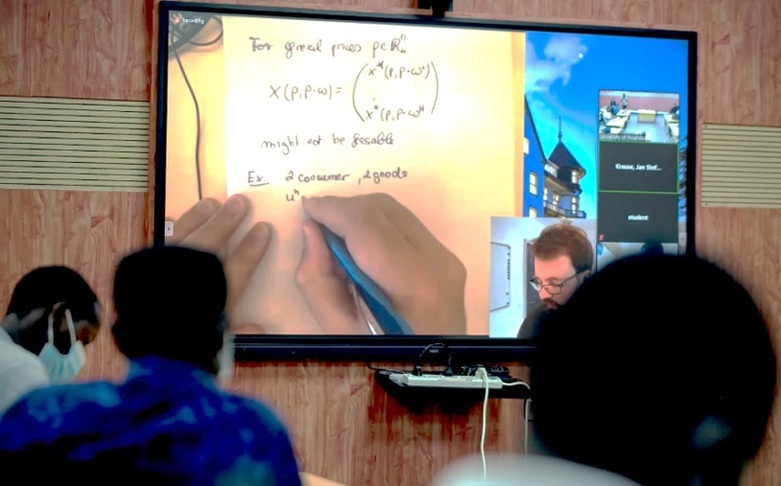Shaping Inclusive Economic Policy
Macroeconomic and Investment Policy in Rwanda
-
Commissioning Party
German Federal Ministry for Economic Cooperation and Development (BMZ)
-
Country
-
Lead executing agency
More
-
Overall term
2021 to 2025
-
Products and expertise
Economic development and employment
Context
Two in five people in Rwanda live on less than 70 US cents a day. The country is working to mitigate poverty and facilitate a significant increase in income. The objective is to ensure that earnings in Rwanda rise to the mid- to upper range in international comparison by 2035.
The Ministry of Finance and Economic Planning (MINECOFIN) has been tasked with developing and carrying out measures related to macroeconomic, tax and investment policy in order to achieve this. It has already taken some important steps, but needs additional analytical expertise and qualified personnel.
Objective
Actors in government and academia are able to design tax and investment policies that promote inclusive growth

Approach
The project is carrying out activities in five fields of activity:
- Planning public investments
- Modelling macroeconomic relationships
- Promoting sound tax policy
- Strengthening university education, research and policy dialogue
- Implementing the new Rwanda Sustainable Finance Roadmap
Specifically, the project is providing guidance on policy scenarios and research papers based on macroeconomic models. MINECOFIN employees can access these models and compile substantiated analyses for political decision-makers.
The project is also supporting the trainee programme at MINECOFIN, the National Bank of Rwanda and the National Institute of Statistics of Rwanda in order to make strategic skill development an integral part of these institutions’ efforts to educate young economists.
In addition, the project is assisting the master’s programme in applied qualitative economics at the University of Rwanda through an academic partnership with Kiel University and the Kiel Institute for the World Economy. This is making the programme more attractive and promoting its ongoing development.
Finally, the project is advising on a participatory and strategic effort to develop a taxonomy for sustainable finance. This will define which activities contribute to objectives related to sustainability and the environment.
Last updated: February 2023





